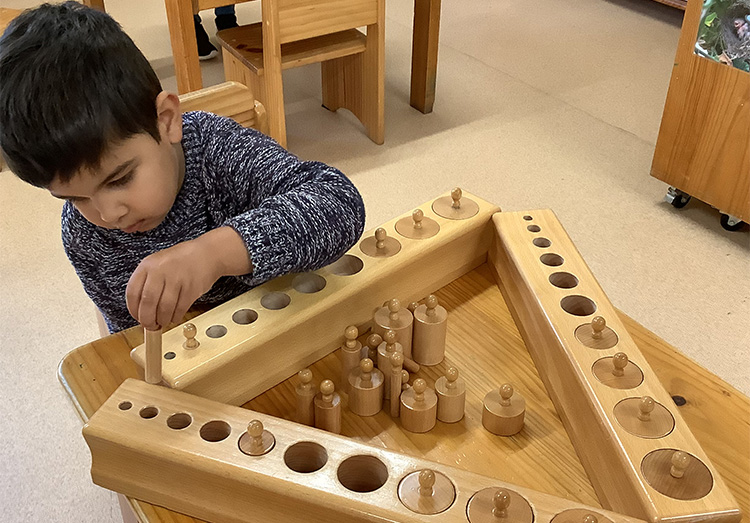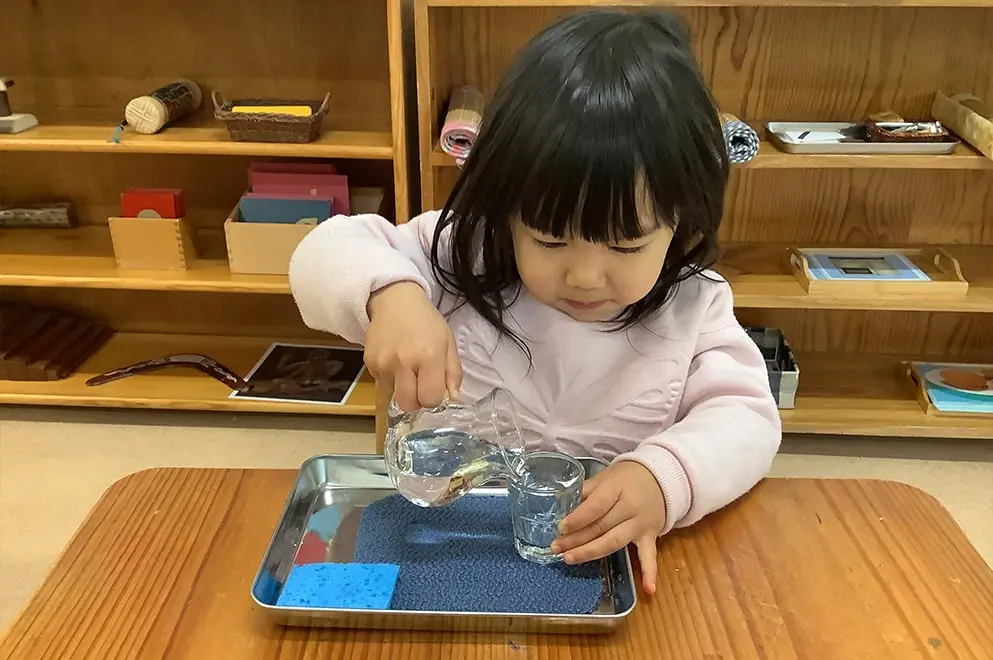The Montessori Method
Dr. Maria Montessori founded an educational system known as the Montessori Method, which is a child-centred approach to learning and development. The Method is based on Dr. Montessori’s observations of children’s behaviour and learning tendencies, and it emphasises creating an environment that fosters independence, creativity, and a love of learning. The Method values each child’s uniqueness and emphasises practical life skills alongside academic learning. Here are some key principles and components of the Montessori Method:
- Prepared Environment: Montessori classrooms are carefully designed to provide a rich and stimulating environment that encourages exploration and learning. The materials and activities are organised and displayed in an orderly manner, making it easy for children to choose and engage with them independently.
- Mixed-Age Groups: Montessori classrooms typically include children of different ages. This setup promotes peer learning, collaboration, and social development as older children naturally assist and mentor younger ones.
- Child-centred Learning: The Montessori Method places the child at the centre of their own education. Educators act as guides, observing each child’s interests, needs, and progress, and then tailoring the learning experiences accordingly. Children are encouraged to choose their activities from a variety of hands-on learning materials.
- Freedom Within Limits: While children have the freedom to choose their activities, this freedom is guided by certain limits and boundaries set by the environment and the educator. This helps children develop self-discipline, respect for others, and a sense of responsibility.
- Hands-On Learning:Montessori materials are designed to be touched, moved and manipulated, allowing children to engage with the embedded concepts through their senses and physical interactions. These materials often have a built-in control of error, enabling children to correct their own mistakes.
- Respectful Relationships: The Montessori Method inspires respect for self, each other and the environment. Children are recognised as individuals with unique strengths and needs. Adults role model and practice respect for children, listening to their perspectives, and supporting their natural development.
- Peace and Cultural Education: Montessori education promotes the development of peaceful and responsible citizens. Cultural subjects are integrated into the curriculum to broaden children’s understanding of the world and foster a sense of global citizenship.



